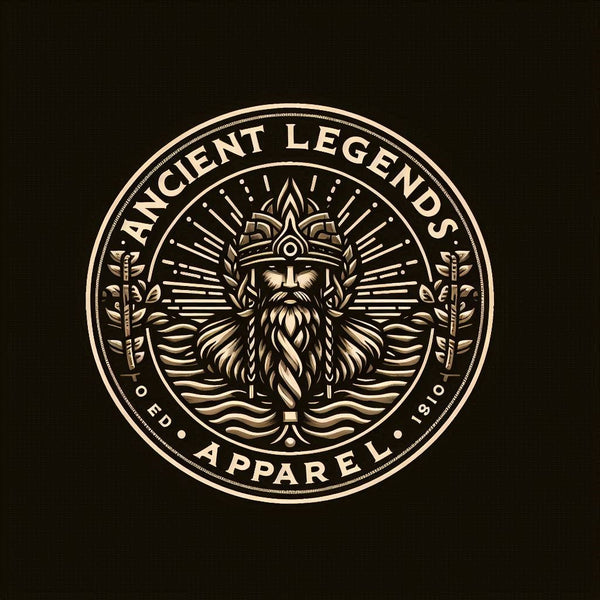How Roman Empire Influenced Today’s Fantasy Worlds
Karl FShare
INTRODUCTION
Spellbinding sagas of intrepid heroes, cryptic enchantments, and monstrous behemoths are the swirling remnants of ancient cultures that continue to captivate us. These tales of old have breathed life into the fantastical worlds we cherish today, from the realms of J. R. R. Tolkien's Middle-earth, to George R. R. Martin's Westeros, and J.K. Rowling’s Wizarding World. Yet, at the root of these woven narratives, there lies an historic tapestry rich in awe-inspiring imagery and profound symbolism, embroidered by a civilization that once dominated the world – the Roman Empire.
ORIGIN AND CULTURAL CONTEXT
The might of Rome is echoed far beyond the skeletal ruins of the Colosseum, or the timeless poetry of Ovid. The Empire's influence pervades our modern sensibilities, underscoring the fantasy stories that enthral us. Roman mythology, derived from its Greek counterparts, was more than just a pantheon of deities and monsters. It was a complex web that shaped their worldview, governed their morality, and explained their history.
Roman culture and its mythology encompassed many facets of life. From the mortal to the divine, the pragmatic to the surreal, their stories mirrored the intricate dynamics of Roman society. They revered gods of their own, such as Mars, the god of war who represented bravery and valor in the face of adversity, and told the tale of Remus and Romulus, the twin brothers, abandoned at birth, who founded Rome according to legend.
THE LEGEND OR STORY
The tale of Romulus and Remus is a pillar of Roman mythology. Sons of the war god Mars and the Vestal Virgin Rhea Silvia, they were cast into the River Tiber by their jealous uncle, King Amulius. Rescued by a she-wolf, who served as their adoptive mother in a wooded grove, the duo eventually uncovered their noble lineage and decided to build a city.
In a quarrel over where to establish this new city, Romulus slew Remus, becoming the first king of Rome. The tale is a compelling mix of history and myth, fraught with sibling rivalry, divine intervention, brutal bloodshed, and the birth of a great city. Such elements of fratricide, usurpation, and empire-building, distilled from the heart of Roman storytelling, continue to pour into the chalice of our modern-day fantasy realms.
INTERPRETATIONS AND SYMBOLISM
The concept of twins has been interpreted widely in many cultures as a symbol of duality or the yin-yang balance, representing the inextricable presence of both good and evil. The tale of Romulus and Remus embodies this duality in a dramatic tale of trust and betrayal, love and hatred, order and chaos.
At its core, this legendary anecdote is a testament to the inherent drama and tragedy of human life, a common theme embedded in the fibres of Roman mythology. It also illustrates the struggle for power and the usurpation of rule, timeless narratives that are instrumental in contemporary fantasy literature. This saga serves as a lens through which to scrutinise the volatile mix of familial bonds and political aspirations that shape societies.
COMPARISONS IN OTHER CULTURES
Similar themes are seen across cultures. In Norse mythology, the gods Odin and Loki share a complex relationship that hovers between friendship and enmity, much like Romulus and Remus. This exploration of fraternal bonds and treachery resonates strongly in many of our beloved fantasy storylines today.
In Hindu mythology, the great epic Mahabharata also revolves around two sets of cousins at war for a kingdom. Not unlike the Roman tale, it involves intricate of familial politics, betrayal, war and divine intervention, further demonstrating the universal resonance of these themes.
MODERN REFERENCES AND POP CULTURE
The essence of Roman mythology pulsates through the veins of various fantasy realms. The saga of Romulus and Remus can be traced to George R. R. Martin’s narrative of Game of Thrones, where familial intrigue, political ascension, and brutal conflict drive the plot.
The Roman god Mars's spirit thrives in J. K. Rowling's Godric Gryffindor, the founder of the courage-symbolising house in Harry Potter, while J.R.R. Tolkien’s Middle Earth owes its epic battles and intricate politics to the grandeur of Roman tales. The arena-filled exploits of Suzanne Collins' "The Hunger Games" conjure vivid recollections of gladiatorial Rome.
LEGACY AND LASTING MYSTERIES
The Roman Empire might have crumbled to dust, but its echoes reverberate, its shadows dance in the landscapes of the fantasy worlds we cherish. Its mythology has seeped into the tapestries of our imagination, enriching the narratives we concoct and consume.
Yet, countless mysteries shroud the relics of Rome. The origins of many tales remain obscure, interpretations manifold, and the line between historical fact and mythical fiction forever blurred. As we continue to explore these ancient narratives, we unearth more layers that intertwine with our contemporary imaginings, ensuring that the Roman Empire's legacy endures, powerful as ever, in the heart of fantasy worlds. Such is the timeless allure of Roman mythology; and as we plunge deeper into our own tales of conflict and camaraderie, justice and power, courage and betrayal, we find ourselves drawing from the same mythical wellspring cultivated by the ancients of Rome.
